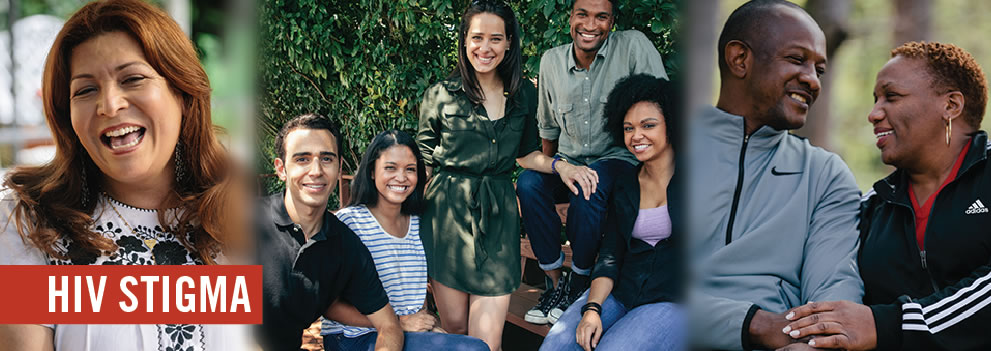HIV, STI and Hepatitis Prevention and Treatment Resources for Health Care Providers


HIV Stigma is negative attitudes and beliefs about people with HIV. When people with HIV are supported, it is easier to lead a healthy life. More information about HIV Stigma and Discrimination
Words Matter HIV Toolkit is a blueprint for facilitating what can be uncomfortable and, at times, difficult but life-saving conversations.
Ending the HIV Epidemic in Missouri
Missouri is one of seven states awarded Ending the HIV Epidemic (EHE) funding to reduce new HIV infections by 90% by 2030. Efforts used to disrupt the newly diagnosed rate of 500 per year align with the National HIV/AIDS Strategy’s four pillars: early diagnosis, prevent, treat and respond. Learn more about Ending the HIV Epidemic in Missouri and provide feedback on the current state plan by visiting the EHE dedicated webpage.
Resources
Discussing Sexual Health with Your Patients - Sexual Health is an essential element of overall health and well-being. This web page provides support for medical personnel to discuss this aspect of health with patients.
HIV Nexus Clinician Resources is a one-stop location for information across the HIV continuum, including up-to-date tools and guidelines for your practice and education materials for your patients.
HIV Testing – HIV screening is recommended for all adolescents and adults 13-64 years of age. Testing can reduce HIV transmissions and early diagnosis can improve medical outcomes. See also HIV Guidelines.
Preventing HIV – More tools are now available for patients to reduce the risk of acquiring HIV. Access risk-reduction tools and resources, including information about pre-exposure prophylaxis (PrEP) and post-exposure prophylaxis (PEP) from Prescribe HIV Prevention.
Learn more about PrEP (PreExposure Prophylaxis)
HIV Treatment as Prevention – Routine care and treatment are the best ways to keep people with HIV (PWH) healthy. PWH who take medication as prescribed can achieve and maintain an undetectable viral load (or viral suppression), resulting in effectively no risk of transmitting HIV to their sexual partners.
STI Treatment Guidelines – The CDC’s Sexually Transmitted Infections (STI) Treatment Guidelines, 2021, provides current evidence-based prevention, diagnostic and treatment recommendations that replace the 2015 guidance. The recommendations are intended to be a source for clinical advice. Healthcare providers should constantly assess patients based on their clinical circumstances and local burden.
Know the Facts: STIs affect people of all ages, yet these diseases take a particularly heavy toll on young people. Learn more about the state of STIs in Missouri by visiting the Missouri Department of Health and Senior Services Sexually Transmitted Diseases/Infections web page.
Health Care Provider Technical Assistance and Training
State and Regional Partners:
St. Louis STI/HIV Prevention Training Center (STLPTC) is part of the Washington University School of Medicine. STLPTC, in conjunction with the St. Louis County Department of Public Health and other training partners, nationally recognized faculty provide health care professionals with the latest research and clinical information in the field of sexually transmitted infections (STIs).
Midwest AIDS Training + Education Center (MATEC) trains community-based practicing primary care physician champions to lead health care transformation and enhance teaching in community-based settings throughout the Midwest.
Show-Me ECHO (Extension for Community Healthcare Outcomes) uses videoconferencing to connect interdisciplinary teams of experts with primary care providers and other professionals. They collaborate in interactive case-based learning to develop advanced skills and best practices, which improves patient care access, quality, and efficiency. Show-Me ECHO operates an HIV and Hepatitis C clinic for free continuing education.
National Partners:
STI Prevention Courses – STI clinical management courses, behavioral intervention courses, courses for STI program staff, and more.
CDC STD Training Resources list - The Division of STD Prevention offers a number of prevention courses and online training.
National STD Curriculum offers a self-study STD Lessons for Clinicians includes seven web-based educational activities, each focusing on a specific STD topic. Each lesson is considered to be an individual course. Free CME credit and CNE/CE contact hours are available for each self-study module.
STD Prevention Science Series – The Centers for Disease Control and Prevention Division of STD Prevention (DSTDP) and The American Sexually Transmitted Disease Association (ASTDA) have partnered to bring you the latest research and best practices for STD prevention. This quarterly series brings lectures on cutting-edge issues by scientists and program experts of world renown to all persons interested in the prevention of STIs, including HIV.
CDC Learning Connection helps public health and healthcare professionals stay informed about quality training from CDC, other federal agencies, and federally funded partners. Each month, the CDC features trainings on its website and promotes them via a newsletter, social media and partner outreach.


